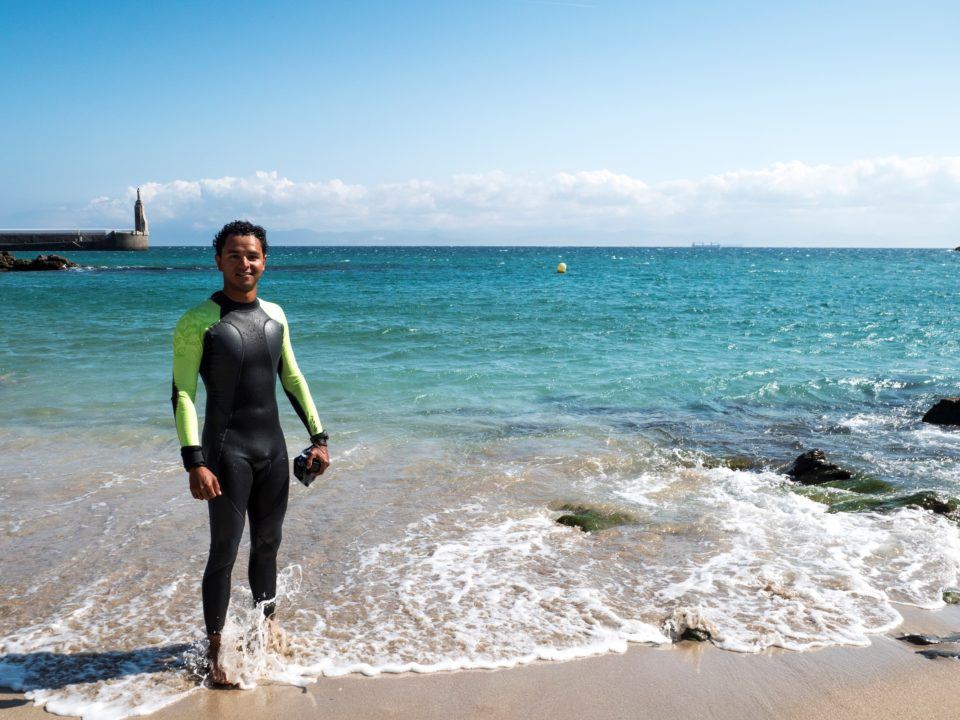Courtesy of Aldo Jansel
Last year I had the privilege of speaking at TEDx Cancún about the Toilet of the future. (https://www.youtube.com/watch?v=bhcxvksm9Fo&feature=youtu.be)
Since then, I have been working on sanitation-related projects because I want to raise awareness about the importance of sustainable sanitation in developing and rich countries.
I have been planning to swim across Gibraltar for two years, and for toilets in México for about six months, but the recent earthquakes in México shifted my focus to relief efforts in the region. I’m Partnering with Heifer México and Architect César Añorve to deliver 100 emergency public compost toilets to the survivors living in the Isthmus of Tehuantepec, a region impacted by two earthquakes in September.
What does Gibraltar have to do with toilets in México? As I mentioned in the TEDx, our wastewater treatment systems were designed to rely on water to transport human waste from the home to the local water body, i.e. a river or the ocean, hopefully passing a treatment center on the way. I’m in Tarifa, Spain right now, located 15km (9 miles) from Morocco. Tarifa is a city heavily reliant on Tourism and it would not benefit from beaches contaminated from sewers, similar to Cancún.
Yet, both cities’s beaches have been contaminated from leaky pipes and insufficient treatment. Most of us do not stop to ponder what happens to our waste after we pull the lever and flush drinking-grade water down the drain.
Look up your local waste water treatment plant. If you live near the ocean, what most likely happens is that your waste will get primary treatment which consists of removing solids, applying a chlorine mix and this remaining sludge will be pumped into the ocean through a marine outfall.
Primary treatment is not enough. We do not yet know the full long-term consequences of these emissaries in marine life and what we do know is alarming enough to ban such practices. If the effluent that comes from these plants are not clean enough to drink, then we are contaminating the rivers and oceans where we swim, play, fish and which attract tourism upon which coastal cities such as Tarifa and Cancún depend.
I believe it’s time that we sustainably manage our own waste by turning it into fertile compost and avoid the contamination of potable water with human feces.
Please support my effort to raise awareness of sustainable sanitation and funds for the construction of 100 toilets in Oaxaca, México.
Here’s how you can join me in my swim:
